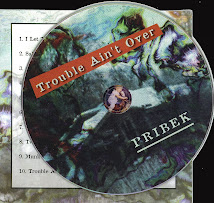You have heard of unleaded gasoline futures, right? You are probably losing your shirts right now. Well, new thinking has a way of moving into "commodities" just by word of mouth.
Fisheries have a risk factor, and some trolleys make better catches than others. High risk means high rewards. But if your "catch" is slim, and maybe due to dwindling fish available, you might keep your shirt if you had bonded in securities of "a profitable system to protect fisheries from collapsing." (Tierney, John; 09.18.2008) So Tierney reports in the New York Times, Science Section today:
"Under this system, a fisherman owns the right to a certain percentage of the annual allowable catch in a fishery. These shares, sometimes called individual transferable quotas, can be bought and sold on the market, and their price goes down if the fish population declines." [SOURCE]"The Environmental Defense Fund, which has helped start a catch-share system with red snapper fishermen in the Gulf of Mexico, praised the report in Science. 'This study shows that the next President can fix the overfishing problem by implementing catch shares,' said David Festa, the director of the oceans program at E.D.F. 'We can turn a dire situation into an enormous opportunity to promote better food security, create jobs and revive ecosystems'...” Tierney quotes in the article. (ibid)
Catch-share fisheries have been monitored for over fifty years in New Zealand, Alaska, and Iceland. Empirical results show "catch-share fisheries were only half as likely to collapse, and that the health of the fisheries improved the longer the catch-share system was in effect."
Traditional methods where seasonal periods are given when fishermen go out and struggle with risk to make quotas against time... "had encouraged a “race to fish” as fishermen flung down as many hooks to catch as many fish as fast as they could. But the catch-share system enabled them to work at a slower, more efficient pace until they reached their guaranteed quota."
- - - - - - - - - - - - - - -- -- - - - - - - - - - - - - - - -
[About TierneyLab...] John Tierney always wanted to be a scientist but went into journalism because its peer-review process was a great deal easier to sneak through. Now a columnist for the Science Times section, Tierney previously wrote columns for the Op-Ed page, the Metro section and the Times Magazine. Before that he covered science for magazines like Discover, Hippocrates and Science 86.
With your help, he's using TierneyLab to check out new research and rethink conventional wisdom about science and society. The Lab's work is guided by two founding principles:
- Just because an idea appeals to a lot of people doesn't mean it's wrong.
- But that's a good working theory.





No comments:
Post a Comment